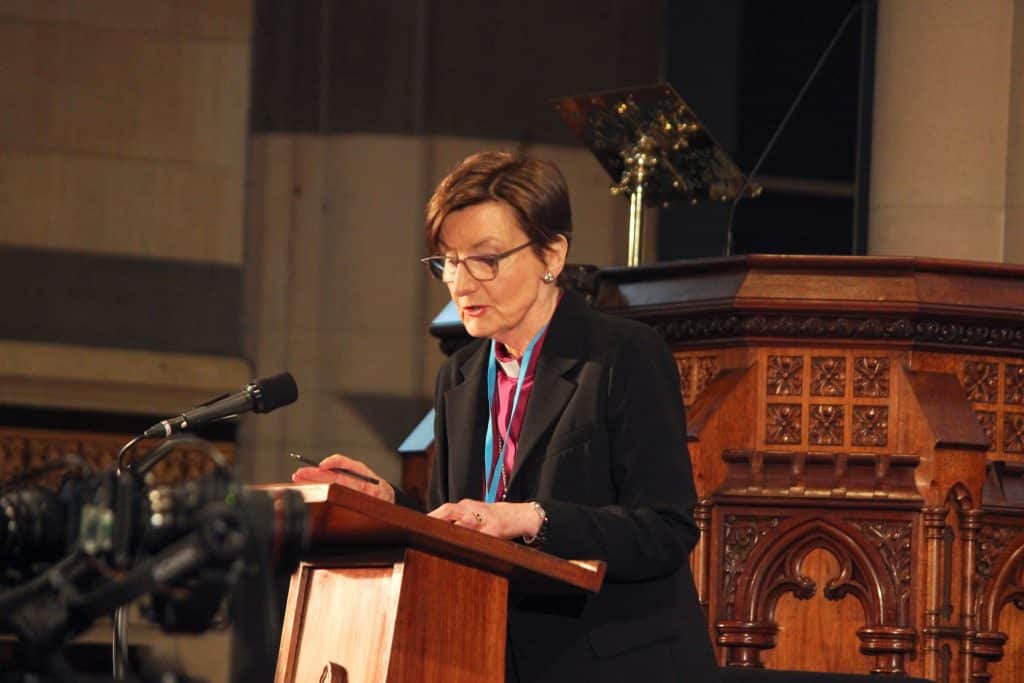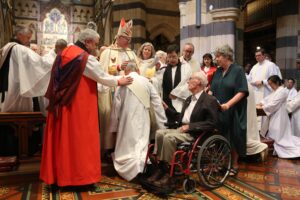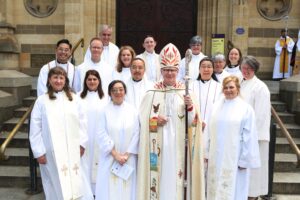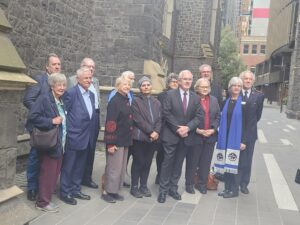
Kirralee Nicolle
15 October 2022
Vicars appointed to their first parish in Melbourne or who have been ordained for less than five years will now undergo review at 36 months post commencement rather than 24 months, due to an amendment passed at Synod.
Bishop Alison Taylor began the discussion, saying there had been no comprehensive review of clergy legislation in over 50 years.
“What we have at present is a patchwork of law,” she said.
Read more: Board of Electors for Melbourne archbishop under discussion
Bishop Taylor said there were over 600 clergy in the diocese, and COVID-19 and lockdowns had introduced financial pressures which did not exist previously.
“Our legislation for clergy is out of date and we are in changing times with new demands,” she said.
Two key amendments which were passed related to the timeframes for reviewing new clergy and whether acting vicars may become permanent vicars at the parish in which they are serving.
Read more: The Archbishop Election Bill – ‘cleaner, clearer, fairer’? Melbourne Synod Day 3
Lay representative Dr Jenny George proposed the amendment to Clause 45 of the Clergy Bill, which had been drafted as follows:
allows the Archbishop to appoint an acting vicar during a vacancy in a
parish, with remuneration and conditions no less favourable than in the
Archbishop in Council determination.
Subclause (4) provides that an acting vicar may not become the vicar
during the next five years.
Read more: Motion on biblical marriage withdrawn, Day 2 of Melbourne Synod
Her amendment proposed that Subclause 4 be removed, in order that clergy may be able to serve as acting vicars prior to a permanent position being offered. Dr George said that this would allow for a parish and a vicar to determine whether the appointment would be a suitable fit.
“Let’s not stop sensible choices being made when everyone involved thinks it’s a good idea,” she said.
The vote was too close to be counted verbally or by sight of the chair, so a formal count was taken, with 238 votes in favour and 118 votes against.
Read more: Some synod questions ‘manifestly out of order’
Reverend Colleen Arnold-Moore also proposed an amendment to Clause 33 (3) of the Clergy Bill, which stated that:
Unless the Archbishop decides on no period or a reduced period, a vicar
appointed to their first parish in the diocese or ordained for less than 5
years is subject to a review after two years. (This is shorter than the
current three years. In contemporary employment practice an appointment
would be confirmed after (at most) six months, and even allowing for the
different dynamic in a parish environment it should be possible for both a
vicar and the representatives of the parish to know after two years
whether it is right for the appointment to continue.)
Read more: 2022 Presidential Address to the Melbourne Synod
Her amendment sought to change the 24-month period to a 36-month period before review, which received verbal support from Synod members before being passed. One clergy member said it would offer those in a cross-cultural setting the opportunity to develop greater cultural awareness before undergoing review.
Discussion of the Clergy Bill began just after 10am and concluded at 2:30pm on 15 October, with a brief break at 11:45am and an hour for lunch.
The article was amended on 18 October to say the review was the first of its kind in over 50 years, not 70 years as previously stated.
For more faith news, follow The Melbourne Anglican on Facebook, Twitter, or subscribe to our weekly emails.







